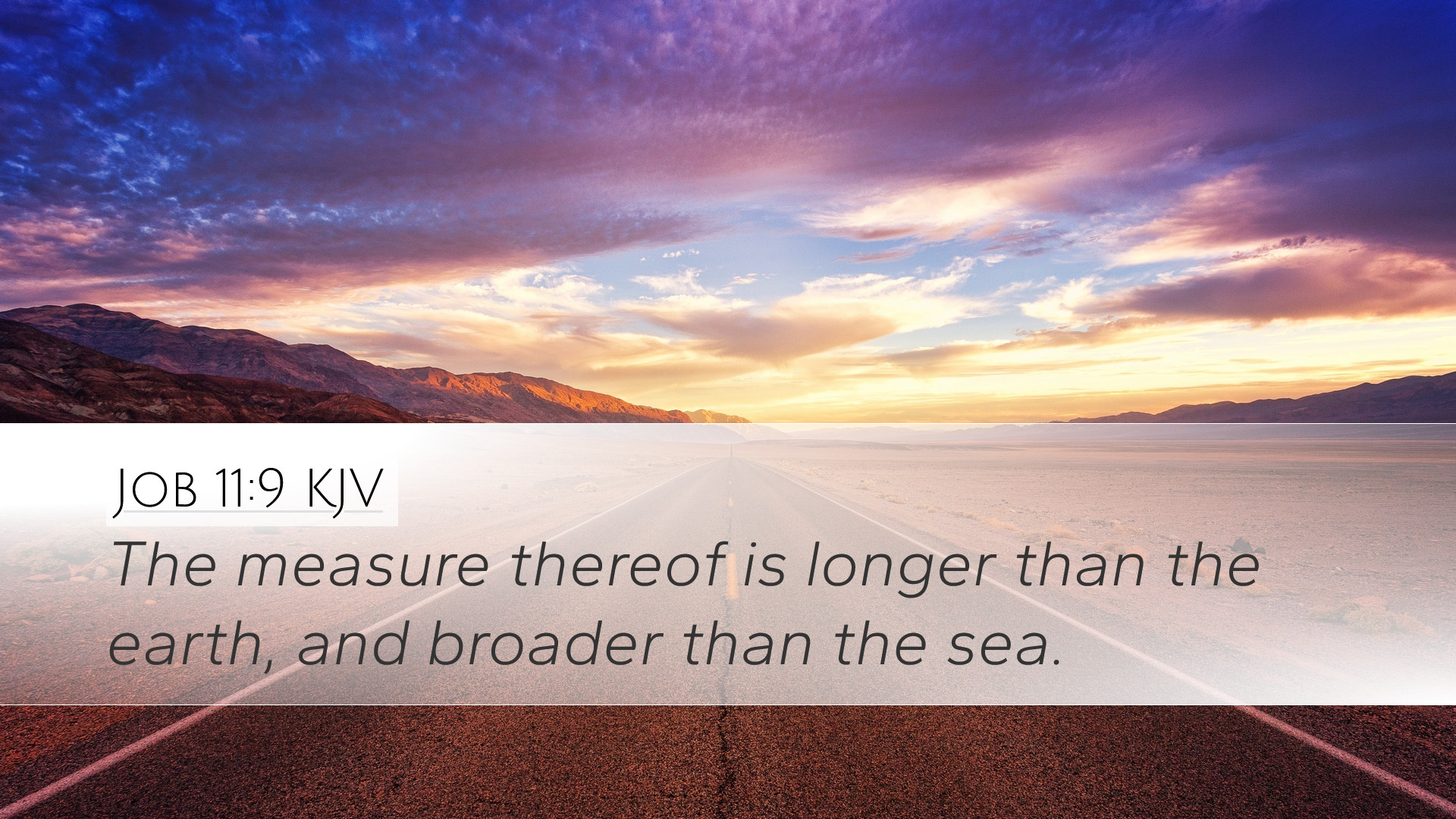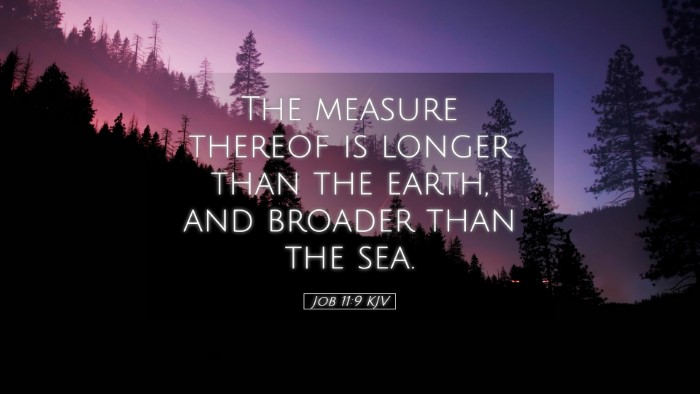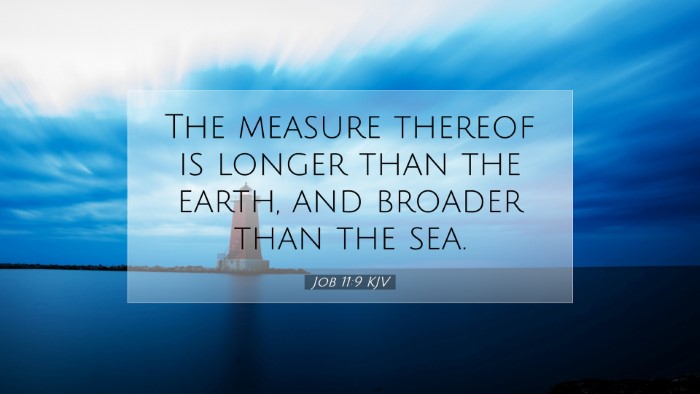Old Testament
Genesis Exodus Leviticus Numbers Deuteronomy Joshua Judges Ruth 1 Samuel 2 Samuel 1 Kings 2 Kings 1 Chronicles 2 Chronicles Ezra Nehemiah Esther Job Psalms Proverbs Ecclesiastes Song of Solomon Isaiah Jeremiah Lamentations Ezekiel Daniel Hosea Joel Amos Obadiah Jonah Micah Nahum Habakkuk Zephaniah Haggai Zechariah MalachiJob 11:9
Job 11:9 KJV
The measure thereof is longer than the earth, and broader than the sea.
Job 11:9 Bible Commentary
Commentary on Job 11:9
Verse: "The measure thereof is longer than the earth, and broader than the sea."
This verse is spoken by Zophar the Naamathite, one of Job’s friends who speaks out of a desire to confront Job’s understanding of God’s character and the nature of divine justice. His assertions reflect a profound theme in the Book of Job: the incomprehensibility of God’s ways and the breadth of His understanding.
Contextual Insights
Job's sufferings prompt a series of discourses from his friends, which culminate in Zophar’s second speech. Unlike Job’s laments and pleas for understanding, Zophar, along with the other friends, offers a more simplistic view of divine retribution: suffering is directly correlated with personal sin. Zophar boldly states that Job’s afflictions are a result of his wrongdoing, urging him to repent to regain God's favor.
Theological Themes
Zophar's statement reflects several important theological themes that resonate throughout the book. Key among these is the idea of God’s omniscience and omnipotence, expressed through the vastness of His judgment and understanding. The phrases "longer than the earth" and "broader than the sea" emphasize God’s immeasurable wisdom and the inherent limitations of human reasoning.
God's Omniscience
Matthew Henry highlights the transcendence of God’s wisdom compared to human comprehension. He suggests that God’s wisdom extends beyond the human experience, thus making it impossible for mankind to fully grasp the intricacies of divine governance. This is reminiscent of Isaiah 55:8-9, where God speaks about His ways being higher than ours.
Human Limitations
Albert Barnes emphasizes the limitations of human understanding in the face of divine mysteries. He posits that humans often presume to know the reasons for their suffering, while in reality, there are depths of divine wisdom that remain hidden from us. Zophar's assertion serves as a reminder that we must approach God with humility and reverence, recognizing that our understanding is finite.
The Wider Context of God's Creation
Adam Clarke comments on the cosmic scope of God’s wisdom as reflected in the natural world. The imagery of oceanic breadth symbolizes the unfathomable depth of God’s thoughts and plans. The vastness of creation is reflective of the enormity of God’s governance. Clarke’s exploration suggests that, just as the sea cannot be contained, neither can God’s wisdom be fully contained or understood by human intellect.
Practical Applications
For pastors and theologians, this verse serves as a foundational reminder of the need for humility in theological discourse. The challenges and adversities faced in life do not always correspond to personal righteousness or sin. Job’s experience portrays the complexity of faith amidst suffering, a theme relevant in pastoral care and counseling.
- Encourage Humility: Remind congregants that God’s plans exceed human understanding.
- Foster Understanding in Suffering: Help individuals grasp that their circumstances do not always reveal a direct punitive response from God.
- Develop Deeper Trust: Encourage deeper trust in God’s wisdom, even when answers are not apparent.
Conclusion
Job 11:9 encapsulates the central struggle found within the Book of Job. Zophar's assertion serves as a rallying cry to acknowledge the greatness of God and the limitations of human understanding when confronted with suffering and despair. By engaging with the insights from Matthew Henry, Albert Barnes, and Adam Clarke, readers are invited to explore the vastness of God's wisdom and to approach their faith with reverence and humility.


